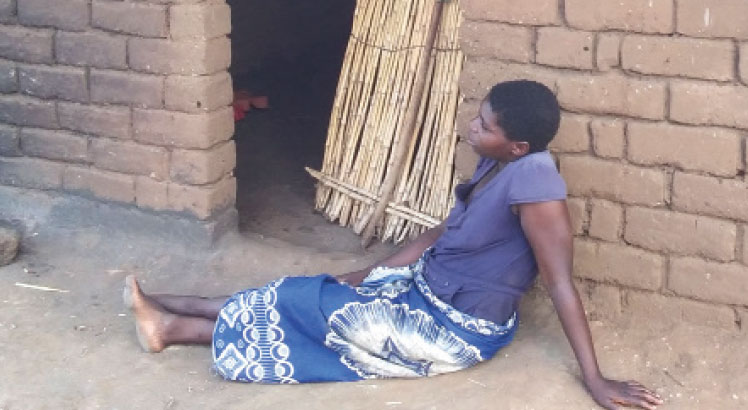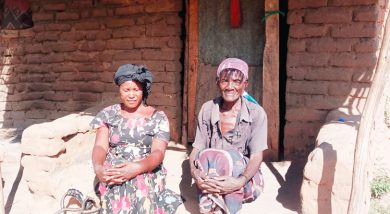Call for coordination in domestic violence fight
Seeing 24-year-old Lestina Elason’s bloodshot eyes and bruises on her swollen face, as she returns home, one can easily tell of the hidden pain endured over the years.
But upon arrival home after a long walk from Chikowa Health Centre in Blantyre Rural where she sought medication for cuts and bruises sustained in a fight with the father of her children, she forces a smile to reciprocate her daughters’ warm welcome.
She greets the little girls, Christina, 7, and Mary, 3, with a brave face to conceal her anguish which she has been carrying over the years.
“Since my husband and I separated months ago, he comes, mostly at night, to beat me and sometimes vandalise household property,” explains Lestina, pointing to the door which she claims was smashed by her husband because she did not open on time.

Lestina reported the matter to police but when he got wind of the news that the police were looking for him, he went into hiding.
After noting that the hunt had subsided, the husband resumed his nocturnal visits for more fights.
“That’s the problem of engaging in teenage marriage. I believe that life couldn’t have been like this if I had not dropped out of school in Standard Eight,” Lestina sighs as she lets out her regret.
Lestina, who hails from the M’banda Village in Traditional Authority (T/A) Kunthembwe in Blantyre, says she is not the only one in an abusive marriage in the area.
She says a lot of her peers are enduring various abuses that include physical assault, financial deprivation, psychological torture and sexual harassment.
Police reports indicate that in the first half of 2021 alone, the country registered 10 675 cases of various forms of gender-based violence.
Violence against women and children is one of the human rights violations which government seeks to eliminate as the country forges ahead to attain the Malawi 2063 aspirations.
To curb the vice, the government has adopted various policies and programmes to address gender-based violence to supplement the Constitutional provisions that that promote gender equality.
Malawi also embarked on Spotlight Initiative, a regional programme supported by the United Nations (UN) in partnership with European Union (EU) to address sexual and gender-based violence in Africa.
The programme, which was rolled out in Mzimba, Nkhata Bay, Ntchisi, Dowa, Nsanje and Machinga districts, also promotes gender equality in line with goal number five of the UN Sustainable Development Goals (SDGs).
The programme has already started making slow but steady progress towards eliminating gender-based violence.
Police records show that the 10 675 cases of gender-based violence recorded in the first half of 2021 represent a 5.6 percent drop when compared to 11 311 cases reported in the same period last year.
Chikuli Police Sub-station officer-in-charge Ben Chazama observes that more needs to be done to stop the vice in the communities in T/A Kunthembwe.
“Physical and sexual violence top the list of the cases and most of sexual violence cases are defilement, especially where a man marries an underage girl,” he says.
Chazama says the community handles gender-based violence cases as civil matters.
“They treat every case as civil and in the end, the perpetrators get away with their criminal acts,” he says.
Chazama also says even where cases have been reported to police, some victims stop pursuing the cases, claiming that they have resolved them as family matters.
He calls for more coordinated interventions in raising awareness on gender-based violence and other human rights abuses.
Group village head M’banda says gender-based violence emanating from family disputes remains a big problem in the villages.
“This has a negative impact on the development of communities because those who are supposed to take part in developmental activities are nursing physical and psychological wounds.”
M’banda says most victims conceal their pain and only rush to police when it becomes unbearable.
Kunthembwe Community Policing Forum chairperson Elias Kagona says lack of readily available transport is affecting the fight against gender-based violence.
“We work with communities to take gender-based violence matters to police but transportation is one major drawback,” he says.
These are some of the issues that Malawi needs to consider addressing on 25th November as the country joins the world in reflecting on the elimination of violence against women. The day also marks the beginning of the global 16 Days of Activism Against Gender-based violence.
There is hope that with the localised theme for this year’s commemoration: Orange Malawi: End Violence Against Women, Act Now, victimised women like Lestina will be saved from the bondage of gender-based violence.





